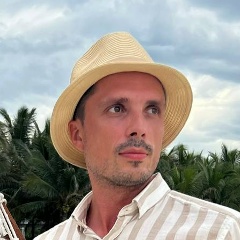Хм. Бертран Рассел пишет в 1925 году — о смелости, в том числе смелости на войне как об исключительном праве аристократии:
«Но военная доблесть оставалась привилегией господствующих каст: у спартанцев ее должно было быть больше, чем у илотов, у британских офицеров — больше, чем у рядовых индийцев, у мужчин — больше, чем у женщин, и т.д. На протяжении веков она считалась исключительным правом аристократии. Любое проявление смелости у представителей господствующей касты использовалось для увеличения бремени угнетенных, а следовательно, и для увеличения страха угнетателей. Причины жестокости поэтому сохранялись. Чтобы сделать людей более гуманными, смелость должна быть демократизирована.»
Никогда не задумывалась, а вроде как похоже на правду. Если попытаться представить себе условного отважного воина до 20 столетия, то только благородные рыцари да гусары на ум и идут. Рядовые Ваньки в обмотках да лаптях с этим образом не вяжутся.
Получается, что Толстой, когда описывал Платона Каратаева и прочих «простых людей» в «Войне и мире» (и, кажется, в «Севастопольских рассказах»), реально революцию в сознании тогдашнем совершал. Простой человек — герой на войне, это как? Да вот так.
А сейчас уже сложно оценить этот прорыв, потому что двадцатый век сделал многое для того, чтобы облагородить образ простого солдата. Демократизировали смелость, получается, по заветам старика Рассела.
«Но военная доблесть оставалась привилегией господствующих каст: у спартанцев ее должно было быть больше, чем у илотов, у британских офицеров — больше, чем у рядовых индийцев, у мужчин — больше, чем у женщин, и т.д. На протяжении веков она считалась исключительным правом аристократии. Любое проявление смелости у представителей господствующей касты использовалось для увеличения бремени угнетенных, а следовательно, и для увеличения страха угнетателей. Причины жестокости поэтому сохранялись. Чтобы сделать людей более гуманными, смелость должна быть демократизирована.»
Никогда не задумывалась, а вроде как похоже на правду. Если попытаться представить себе условного отважного воина до 20 столетия, то только благородные рыцари да гусары на ум и идут. Рядовые Ваньки в обмотках да лаптях с этим образом не вяжутся.
Получается, что Толстой, когда описывал Платона Каратаева и прочих «простых людей» в «Войне и мире» (и, кажется, в «Севастопольских рассказах»), реально революцию в сознании тогдашнем совершал. Простой человек — герой на войне, это как? Да вот так.
А сейчас уже сложно оценить этот прорыв, потому что двадцатый век сделал многое для того, чтобы облагородить образ простого солдата. Демократизировали смелость, получается, по заветам старика Рассела.
Hm Bertrand Russell writes in 1925 about courage, including courage in war as the exclusive right of the aristocracy:
“But military prowess remained the privilege of the ruling castes: the Spartans should have more of it than the helots, the British officers more than the ordinary Indians, the men more than the women, etc. For centuries, it was considered the exclusive right of the aristocracy. Any manifestation of courage among the representatives of the dominant caste was used to increase the burden of the oppressed, and consequently, to increase the fear of the oppressors. The causes of cruelty therefore remained. To make people more humane, courage must be democratized. ”
I never thought about it, but it seems like it seems to be true. If you try to imagine a conditional brave warrior before the 20th century, then only noble knights and hussars go to mind. Ordinary Vanki in the windings and sandals with this image do not tally.
It turns out that Tolstoy, when describing Platon Karatayev and other "ordinary people" in War and Peace (and, it seems, in Sevastopol Tales), actually made a revolution in the consciousness of the then. A simple man - a hero in the war, it's like? Yes, that's it.
And now it is difficult to assess this breakthrough, because the twentieth century has done a lot to ennoble the image of a simple soldier. Democratized courage, it turns out, according to the precepts of old Russell.
“But military prowess remained the privilege of the ruling castes: the Spartans should have more of it than the helots, the British officers more than the ordinary Indians, the men more than the women, etc. For centuries, it was considered the exclusive right of the aristocracy. Any manifestation of courage among the representatives of the dominant caste was used to increase the burden of the oppressed, and consequently, to increase the fear of the oppressors. The causes of cruelty therefore remained. To make people more humane, courage must be democratized. ”
I never thought about it, but it seems like it seems to be true. If you try to imagine a conditional brave warrior before the 20th century, then only noble knights and hussars go to mind. Ordinary Vanki in the windings and sandals with this image do not tally.
It turns out that Tolstoy, when describing Platon Karatayev and other "ordinary people" in War and Peace (and, it seems, in Sevastopol Tales), actually made a revolution in the consciousness of the then. A simple man - a hero in the war, it's like? Yes, that's it.
And now it is difficult to assess this breakthrough, because the twentieth century has done a lot to ennoble the image of a simple soldier. Democratized courage, it turns out, according to the precepts of old Russell.
У записи 5 лайков,
0 репостов.
0 репостов.
Эту запись оставил(а) на своей стене Полина Оскольская


























